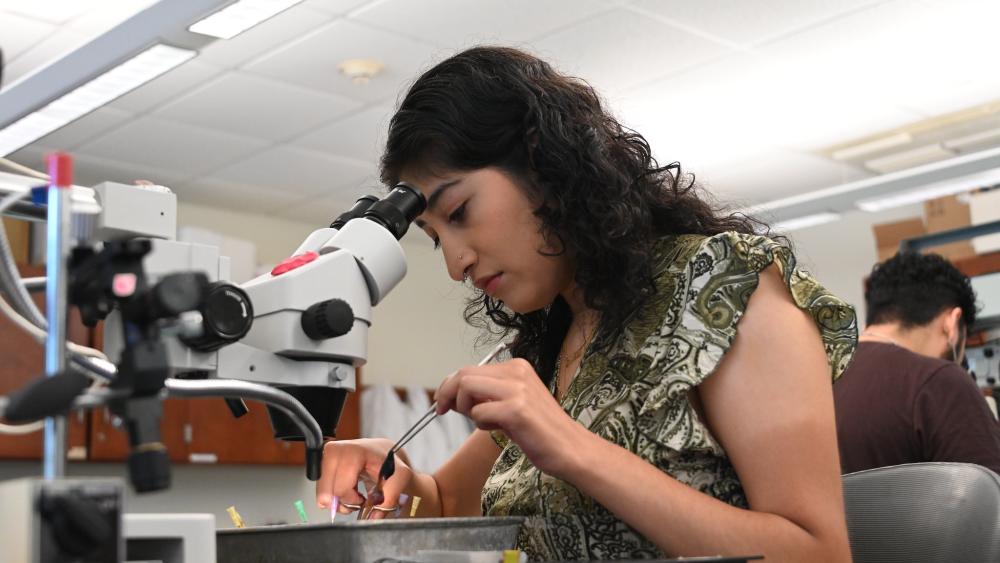Slug Lab Student Researchers, Professors Publish Study on Memory

Nine Dominican student researchers are co-authors of a newly published paper presenting findings on the study of memory from the university’s Slug Lab.
The paper, published on March 27 by the journal eNeuro, is entitled "Evidence of Active-Forgetting Mechanisms? Blocking Arachidonic Acid Release May Slow Forgetting of Sensitization in Aplysia." Its authors are DU Professors Dr. Robert Calin-Jageman and Dr. Irina Calin-Jageman, with students Bryan Gonzalez Delgadillo, Elise Gamino, Zayra Juarez, Anna Kurkowski, Nelly Musajeva, Leslie Valdez, Diana Wittrock, Theresa Wilsterman and Jashui Zarate Torres.
The paper documents the testing of the researchers’ hypothesis that forgetting can be manipulated by changing the signaling of an inhibitory peptide neurotransmitter called FMRF-amide.
"On the one hand, we found that blocking FMRF-amide did, indeed slow down forgetting," the professors wrote on the Slug Lab's blog. "On the other hand, we obtained a very wide confidence interval; we can’t be sure it is a large/replicable effect."
The findings can be read here.
Read more about Dominican University's research of learning and memory using Aplysia californica, a species of sea slug, in the Behavioral Neuroscience Lab (a.k.a. the Slug Lab) here.